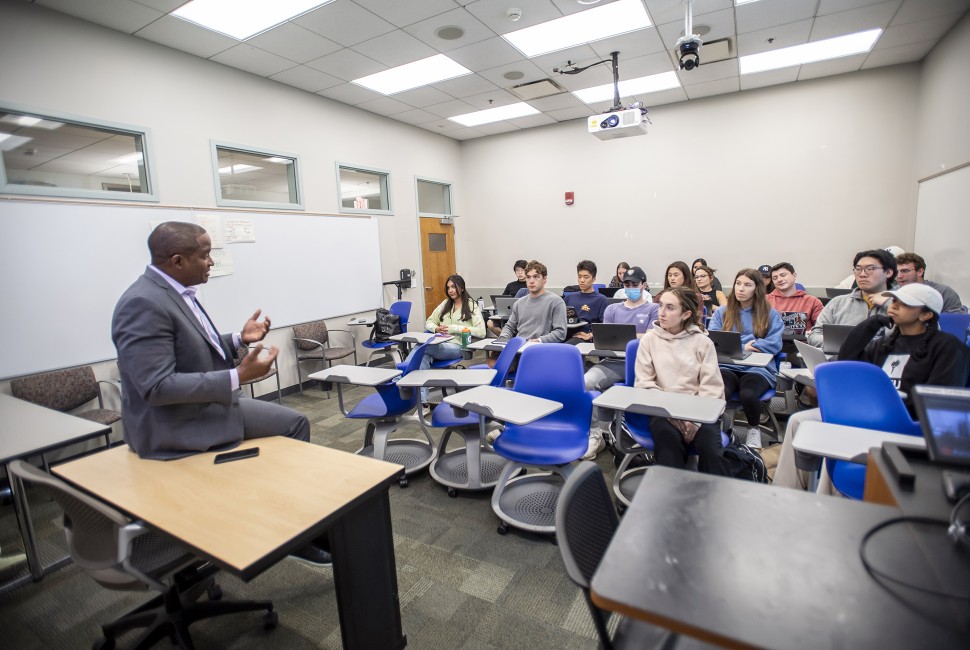The son of a lifelong educator, Derrick Gragg is determined to stay connected to the classroom while serving as Northwestern’s Combe Family Vice President for Athletics & Recreation.
“I’ve always wanted to be fully integrated into campus life,” Gragg said. “I’ve been an adjunct faculty member for nearly 18 years at different institutions, and it’s just a part of me. I enjoy it because one of the things about a position like this is, as you rise in an organization, you can get further removed from the students.”
It has been almost one year since Northwestern announced Gragg’s appointment as head of Wildcats athletics and recreation. A former football letter winner at Vanderbilt University, Gragg says he’s always valued the impact of academics on athletes. He earned a master’s degree in sports administration from Wayne State University and a doctorate in higher education administration from the University of Arkansas.
His own experience as a student gives him an edge now that he’s at the head of the class.
This spring, Gragg is teaching an elective class in the Weinberg College of Arts and Sciences called “The Business of College Sport.” The class is part of the minor in business institutions offered by the Harvey Kapnick Center for Business Institutions and open to all undergraduates regardless of their major or school.
Gragg says he feels especially connected to this class because he took it himself while earning his master’s degree. When the instructor retired, administrators at Wayne State asked him to teach it. Since then, he’s taught about a dozen different courses over the past 20 years.
I’ve either been involved in a similar experience, or I can speak to it because I’ve been in the room.”
Combe Family Vice President for Athletics and Recreation
The class provides an overview of the major issues related to intercollegiate administration. And there is plenty to discuss for three hours each week, including integrity and institutional control; student-athletes as employees; Name, Image and Likeness legislation and policy; social justice consciousness related to racial equity and opportunity; and transgender student-athletes.
Gragg has made weekly instruction a team effort, inviting several Northwestern athletics and recreation staff — from marketing to fundraising — to share expertise about their various roles supporting the success of Wildcats sports.
From his point of view, each point in the syllabus reads almost as a history of his life in sports.
“I’ve either been involved in a similar experience, or I can speak to it because I’ve been in the room,” he said. “I’ve seen college athletics evolve in a lot of ways.”
While serving as athletics director at the University of Tulsa, Gragg helped launch the Tulsa Legacy Game, which was created to pay tribute to the survivors and descendants of the 1921 Tulsa Massacre, one of the worst incidents of racial violence in U.S. history. The first football game took place in 2020 when Tulsa hosted East Carolina University.
Just before arriving at Northwestern, Gragg had been the NCAA senior vice president for inclusion, education and community engagement. He says that background also benefits his students because issues of diversity and inclusion are so important to the future of college sports.
Gragg says by the end of the quarter, he hopes students will have developed a better understanding of the inner workings of college athletics and how the business works. He reminds students that being successful in this, or any business doesn’t come overnight, and stresses the need to pay your dues, do your research and always make decisions with integrity.
“I feel a responsibility to share that with the younger generation,” he said. “I think the best administrators are those who really understand why we’re in the business. We make decisions based on what’s best for the student-athlete.”


